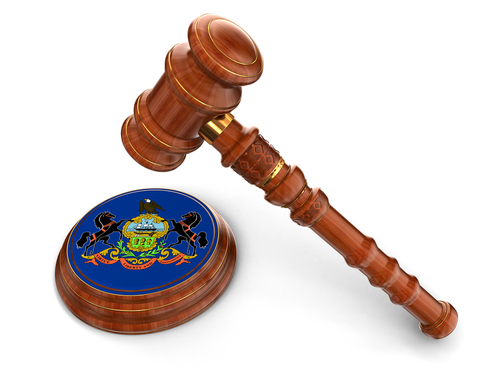Coping with the 5th Amendment Blues
Family lawyers don’t run into the 5th Amendment often but when it happens time stands still. If we lived in a world where lawyers engaged in free discovery and deposed every party and witness this issue would be known in advance and the stymied lawyer would be on notice that it was time to hit the books and prepare a responsive strategy. But even though family lawyers in Pennsylvania have enjoyed rights to discovery in divorce since 1988, lawyers and their clients often eschew deep or combative discovery as an unnecessary expense.
So, what happens is that a lawyer calls an adverse party as of cross examination and hands that witness a tax return, a bank statement or another document and begins to inquire about the accuracy or content of the document. The unexpected reply is that the witness declines to answer the question on the basis that it may incriminate him/her. Or, in a custody case, the lawyer asks the recently arrested father whether he was arrested for child pornography or statutory rape or some other horrific conduct that may squarely affect the best interests of the child. Again, the answer is a blanket assertion of the constitutional privilege against self-incrimination. What now?
Often the inquisitor and the trial judge look perplexed because the 5th Amendment is rarely invoked in family cases. In many instances when the 5th Amendment is asserted it comes at a time when the subject is critical to the case. The inquiring lawyer needs the tax return or bank statement in the record. Or the arrest of the parent in a place known for trafficking underage prostitutes is key to a theme that his proclivities are destructive to the needs of his teenage child. The 5th Amendment is often perceived as a cold stop to the inquiries. Most lawyers know that assertion of the 5th Amendment allows the court to make an adverse inference against a party asserting it. Unfortunately, that is thin gruel if the effect of the claim against self incrimination stops the authentication or the admittance of crucial evidence. Fortunately, a recent article in the Journal of the American Academy of Matrimonial Lawyers shows there is a path. The Journal and the article by Brett Turner are available on line.
Author Turner reminds us that while the 5th Amendment is couched as if intended to apply only in criminal proceedings, there is widespread acceptance that it can be asserted in any proceeding where the testimony could be used in a pending or future criminal proceeding. But the key point asserted by Mr. Turner is that the court needs to tailor use of the 5th Amendment to prevent self incrimination and not as a device to block the proceeding.
Take the example of the bank statement or the tax return. A party may be able to elude answering questions about those parts of the return or document that relate directly to possible criminal conduct but it should not prevent the admission of a document that was otherwise filed as an official record. The deponent (person testifying) should not be permitted to deny the document or whether it was filed with a government authority or a lender. The existence or filing of a document is not a criminal act. The fact that the tax return contains a deduction of $20,000 for office supplies is also a fact that does not incriminate. Asking what expenses compose the $20,000 deduction may merit a 5th Amendment assertion. But that puts the onus on the deponent to either answer the question or prepare for an inference that the entire $20,000 had no business purpose. In a similar vein, when confronted with a $20,000 bank deposit by a witness who otherwise would never have access to that amount of money, the witness may be compelled to answer whether he made the deposit at the time and place described. When asked the source of those funds the 5th Amendment may be a proper objection.
Turner notes that the 5th Amendment can produce a cold stop unless the inquiring lawyer thinks carefully about how the potential or charged crime ties to the evidence and the trial judge follows the inquiry with the same attention to detail. The Fifth Circuit Court of Appeals has held that it is for the court to decide whether the privilege against self-incrimination has been properly asserted. SEC v. 1st Financial Group. 659 F.3d 660,668 (1981). But the assertion should be extended to situations where the answer to a question could reasonably lead to incriminating evidence. Hoffman v. U.S. 341 U.S. 479, 486 (1951). In a New York case, Slater v. Slater, the trial court held that the person asserting the privilege needed to show a present danger that his income tax returns could clearly expose him to criminal charges for filing a false return. 355 N.Y.S.2d at 944. The article notes a number of states where adultery remains a crime and suggests that the privilege applies whether the crime is prosecuted or not. It also mentions that when statutes of limitation have expired the privilege against self-incrimination becomes academic.
Pennsylvania has struggled with this issue and the Supreme Court’s Evidence Committee issued a report on this. 49 Pa. Bulletin 3873 (7/27/2019)
That report suggests that where the privilege is asserted, a court may hold an in camera proceeding which might exclude the inquisitor so that only the judge makes the inquiry and presumably does so off the record or on record with the colloquy being sealed. This could prove both cumbersome and perhaps ineffective unless the judge knows where the lawyer conducting the examination is headed. The report also suggests that pro se litigants asserting the 5th Amendment may be entitled to appointment of counsel. Last and certainly not least is the problem family lawyers face; we are often conducting our examination before someone who is not a commissioned judge. It would seem clear that Hearing Officers don’t have authority to compel testimony or regulate 5th Amendment assertions.
This is a challenging area and one where loose assertions of 5th Amendment privilege can be employed to deny vital substantive rights to a family law litigant. The article by Brett Turner is a useful thing to have in one’s file.






